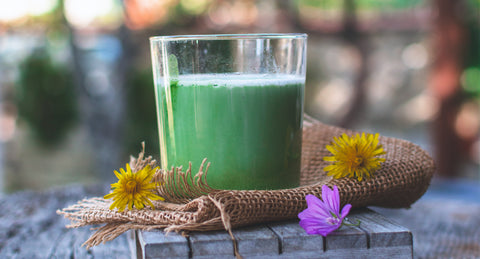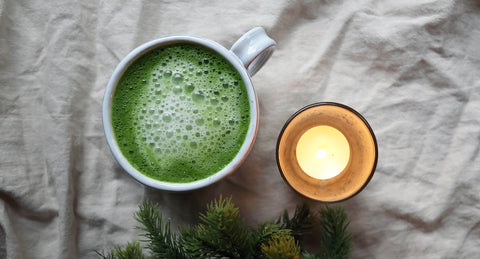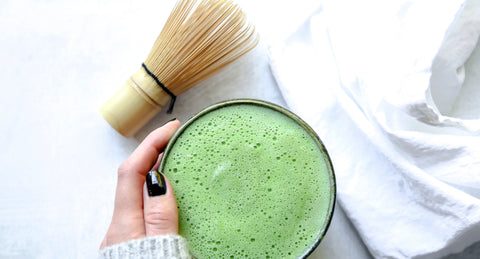Matcha, a finely ground powder of specially grown and processed green tea leaves, has become a popular beverage around the world due to its unique flavor and numerous health benefits. However, like all things, moderation is key. So, how much matcha should you drink in a day? Let's explore this question in detail, considering the benefits, potential side effects, and the best times to enjoy this vibrant green tea.
Benefits of Matcha
Before diving into the recommended daily intake, it's important to understand why matcha is so beneficial:
- Rich in Antioxidants: Matcha is packed with catechins, a type of antioxidant that helps prevent cell damage and provides numerous health benefits.
- Boosts Metabolism: The combination of caffeine and antioxidants in matcha can help boost metabolism and aid in weight management.
- Enhances Mood and Concentration: L-theanine, an amino acid in matcha, promotes relaxation and helps improve focus and concentration.
- Supports Immune Health: Matcha contains various vitamins and minerals that support the immune system.
- Detoxifies the Body: Chlorophyll, responsible for matcha's vibrant green color, aids in detoxifying the body by removing heavy metals and toxins.
Recommended Daily Intake
Most health experts recommend consuming 1-2 servings of matcha per day. A standard serving size is typically 1 teaspoon of matcha powder, which contains approximately 70 mg of caffeine. Here’s a breakdown of what this means in terms of daily consumption:
- One Serving (1 teaspoon): This amount provides enough caffeine to boost energy and alertness without causing jitteriness, thanks to the calming effects of L-theanine.
- Two Servings (2 teaspoons): For those accustomed to caffeine, consuming two servings can still be beneficial and safe, offering a significant antioxidant boost and energy lift.
Potential Side Effects
While matcha is very safe, excessive consumption can lead to some side effects due to its caffeine content and other compounds:
- Caffeine Sensitivity: Individuals sensitive to caffeine may experience insomnia, headaches, or jitteriness if they consume too much matcha.
- Gastrointestinal Issues: Drinking large amounts of matcha can lead to stomach upset or nausea in some people, especially on an empty stomach.
- Iron Absorption: High consumption of green tea can interfere with iron absorption from food, so it’s advisable to separate matcha intake from meals by at least an hour.
Best Time to Drink Matcha
Timing your matcha consumption can enhance its benefits and minimize potential side effects. Here are some optimal times to drink matcha:
- Morning: Drinking matcha in the morning can be a great way to start your day. The combination of caffeine and L-theanine provides a sustained energy boost without the crash associated with coffee.
- Mid-Morning or Early Afternoon: If you need an energy lift during the day, a cup of matcha can help improve focus and productivity. Avoid drinking matcha late in the afternoon or evening to prevent sleep disturbances.
- Pre-Workout: Matcha can be an excellent pre-workout beverage. Its caffeine content boosts energy levels and endurance, while the antioxidants help reduce exercise-induced oxidative stress.
Tips for Enjoying Matcha
To make the most of your matcha experience, consider these tips:
- Quality Matters: Choose high-quality, organic matcha to ensure you’re getting the maximum benefits without harmful additives.
- Proper Preparation: Use water heated to around 175°F (80°C) to avoid burning the matcha and bringing out a bitter taste. Whisk thoroughly to create a smooth, frothy drink.
- Balanced Diet: Incorporate matcha as part of a balanced diet rich in fruits, vegetables, lean proteins, and whole grains.
Conclusion
In summary, consuming 1-2 servings of matcha per day is generally safe and beneficial for most people. Pay attention to your body's response and adjust your intake accordingly. Enjoy matcha in the morning, mid-morning, or as a pre-workout boost to maximize its benefits. As with any health regimen, moderation and balance are key to enjoying the perks of matcha while minimizing any potential downsides. Please note this blog post serves as a general reference point and is not medical advice.
So, go ahead and enjoy your matcha mindfully, and let it be a delightful part of your daily routine!



